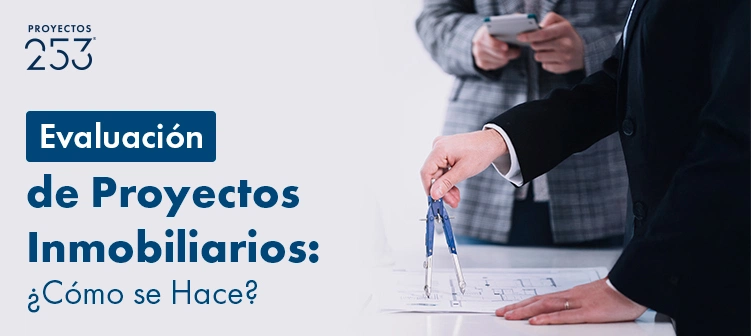To evaluate real estate projects, we recommend taking into account several factors: location, trajectory of the real estate developer, property habitability, investment potential, delivery times, design and architecture.
The analysis of a project requires a critical approach and attention to detail, in this way you can maximize your return on investment potential and minimize risks.
Whether you are an experienced investor or new to the real estate market, take the following steps: It will help you have a global and critical vision of each stage of development:
1. Evaluate the location

This factor is considered one of the most important when analyzing any investment, since it can determine whether the project is viable or not.
Location can influence market demand and property prices. Therefore, it's advisable to analyze the following points:
- Accessibility to infrastructure projects: Proximity to public transport services, airports and access roads are good indicators.
- Proximity to recreational areas: A project can increase its attractiveness by being close to shopping, educational and health centers.
- Quality of adjacent developments, as they represent an opportunity for further capital appreciation.
2. Evaluate the reputation of real estate agents
The track record of the agents influences the level of project risk. If the company lacks experience, it could lead to legal issues, delays, poor project profitability, or even investment losses.
Therefore, ensuring they have extensive experience and a track record in the market is a key step in any evaluation. In that case, keep in mind:
- Meeting deadlines: If the company has completed other projects on schedule and effectively, it is a good sign.
- Legal compliance: Companies with a stable financial situation, which are up to date with the corresponding permits and licenses, are less likely to experience construction delays.
- Build Quality: At this point, a thorough analysis of previous constructions is carried out to verify: finishes, durability of materials and functionality of the structures.
3. Verify architecture and design
The real value of a property lies in the quality of its design and its level of functionality. Both aspects influence livability, and even They can increase or decrease their value in the market.
A deep analysis of architecture and design involves considering the following:
- The use of spaces: If it has a good layout, makes efficient use of surfaces and minimizes dysfunctional areas, it is an asset worth investing in.
- Design consistency: A coherent design (interior and exterior) increases property value, especially when it comes to luxury homes.
- Differential qualities: Market trends favor sustainability and innovation, as they reduce long-term costs and attract more potential buyers, especially if your goal is to resell the property.
4. Research prices and value
The value for money of a real estate development project It depends on the location and market positioning.
To know if a property represents an investment opportunity, pay attention to factors such as:
- The price per square meter: It is compared with other properties in the area to determine the competitiveness of its price.
- General price: of the different units of the project.
- Flexibility and payment plans: Plans that allow payment after receiving the property are more attractive to buyers.
5. Conduct a competitive analysis
A SWOT (strengths, weaknesses, opportunities, and threats) analysis is performed to summarize the results of the project evaluation and market research. This gives you an overview of the potential investment.
This analysis allows you to obtain a series of competitive advantages:
- Leveraging the strengths of development.
- Reduce potential weaknesses.
- Exploit opportunities.
- Mitigate risks and threats.
Likewise, with this document, you can learn how competitors have carried out their projects and keep their strategies on your radar.
6. Study the delivery schedule
Thanks to a delivery schedule, investors and developers alike can keep track of the property. It is also an essential file for risk management.
Those companies that have a realistic delivery process, They can offer guarantees to investors (regardless of the type of project).
Furthermore, it is important to evaluate the measures taken to resolve contingencies and whether they have reimbursement or compensation policies for delays.
7. Make a comparison with other projects
This analysis allows you to accurately evaluate real estate projects by comparing them with competitors.
In this step, it is determined whether the property has: better, equal, or inferior amenities to others. Similarly, Its positioning in the real estate sector is appreciated to understand whether it fills a void or enters a saturated space.
8. Observe the investment potential
When valuing a property, you must take into account capital appreciation and market demand.
You may also want to check how other properties in the area have increased in value and how close they are to other developments.
9. Review each step and score it
To make informed decisions, it is advisable to consider scoring each of the criteria established above.
Factors such as the developer's reputation, location, and investment potential often carry greater weight. While the differentiating aspects and delivery schedule may be less relevant.
Once you have assigned the score for each criterion, a final summation of the project is made.
Through this system, you can make a very precise assessment based on different scenarios and variables.
With professional help you can create your own financial feasibility study
Analyzing a project goes beyond considering the location or price of the property, since There are several factors that can contribute to the success or failure of a potential investment.
That's why A feasibility study is key to finding high-potential properties and with the greatest appeal to investors.
Projects 253 can be a great ally in the evaluation process of real estate investment projects. If you want to invest in real estate, write to us and let's talk about your case.



